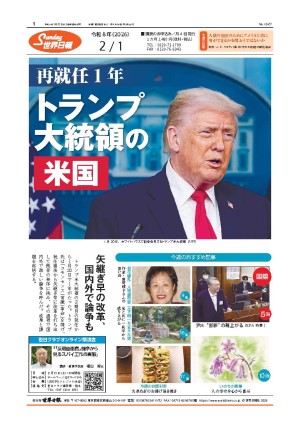暴君の死 The death of a tyrant
私たちの大抵の者が母親の膝元で学ぶように、死人のことを悪く言うことは良い事ではない。しかし、例外はある。フィデル・カストロは、単に亡くなったからと言って、良く思われる資格はない。彼は独裁者であり、暴君であり、絞首刑執行人の心を持った、悔悟の念などみじんもないごろつきであった。だから、私たちは彼が死亡したことを喜べるのである。
オバマ大統領は、「キューバの国民」にできる限りの丁重な姿勢で哀悼の言葉を贈ったが、カストロのレガシー、すなわち銃殺部隊、国庫の略奪、国民の飢餓の無視、そして自由な言論、信仰、結社、集会、また正当な法の手続きの権利などの拒否は、到底忘れられるものではない。
オバマ氏は、彼がキューバ政府との国交正常化に道を開いたことを、彼自身のレガシーの重要な部分と見なしているが、今までのところ、米国が行った変化や譲歩に対する相互的変化を要求できないでいる。大統領は、今、胸に抱えているかもしれない、これからきっと行われるであろうにぎにぎしい葬儀で、他国の首脳らに交じって、心のこもらないことを言うために、ハバナに飛んで行きたいという、いかなる衝動も抑えるべきである。海外の葬儀に出席することは、副大統領がすることなのだが、彼はこの葬儀については、ジョー・バイデンを国内に置いておくべきなのだ。
カストロは死亡した時90歳で、新しい最高指導者の弟、ラウルは85歳であるから、変化はすぐにもキューバを見舞うであろう。2、3回の戦略的葬儀も含め、何も独裁制に改良はもたらさない。だから米国は、この島での民主主義の開花への道普請になるようなあらゆる影響力を行使しなければならないのだ。
カリブ海の憧れの人を失った左派は、マルクス主義信奉者のカストロを熱心に称賛したがっている。カナダの首相、ジャスティン・トルドー氏は、「半世紀近く国民に奉仕し」「彼の島国の国民の教育や厚生に大きな改善をもたらした」「伝説的な指導者」の死に「深い悲しみ」を表明している。しかし、自由な空気を吸いたいと思っている男女の欲求は、一皿の豆に対するそれよりも大きい。
カストロのレガシーは、1962年のキューバ・ミサイル危機の時に大々的に伝えられた。その時、世界は核戦争の瀬戸際に立たされたジョン・F・ケネディ大統領とニキータ・フルシチョフ・ソ連首相が、ソ連がフロリダの海岸から90マイルのところに置いた核ミサイルをめぐって睨(にら)み合っており、皆固唾をのんで、それを見守っていたのだ。
カストロは、ソ連の首相にそれらの核ミサイルを用いるように働き掛けたのだが、フルシチョフ首相がミサイルを引き揚げ、世界がほっとすると、彼をたしなめた。フルシチョフは、特に鈍い学生を教えている教授のように「貴君の10月27日の電報で、貴君は、われわれが初めて敵の領土に核攻撃を行おうと提案した。当然、貴君は、われわれがどういうことになるか理解しているはずだ。それは、一回の攻撃では済まないで、熱核戦争の始まりになるのだ」と答えた。
「親愛なる、フィデル・カストロ同志、私は貴君の提案は間違っていると思う。…キューバは戦火の中で燃え尽きたであろう…われわれは死ぬために帝国主義と戦っているのではなく、われわれの潜在力を活用し、損失を最小化し、その後にさらにより多くを勝ち取るために戦っているのだ…」とも。
それは、現実に対する著しい無知を露呈した男、マルクス主義のユートピアを建設するために、自国民の一人たりとも逃さずに、喜々として犠牲にする男に対する叱責であった。暴君の死を祝うために大挙して街に繰り出したマイアミで亡命生活を送っているキューバ人は良い知らせに正しく当然の反応をしたのである。
(11月28日付)
Speaking ill of the dead is not nice, as most of us learn at mother’s knee, but there are exceptions. Fidel Castro deserves no nice thoughts simply because he’s dead. He was a despot and a tyrant, an unrepentant rogue with the conscience of a hangman, and we can be glad that he’s dead.
President Obama went as far as he could decently go with condolences to the “Cuban people,” but there can be no forgetting his legacy of firing squads, plundering of the public treasury, obliviousness to the hunger of the people and the denial of the fundamental human rights of free speech, freedom of worship, association, assembly and due process of law.
Mr. Obama regards his diplomatic opening to Havana as a key part of the legacy of his own, but so far he has failed to demand reciprocal changes in response to changes and concessions made by the United States. The president should restrain any impulses he may have now to fly to Havana to join other heads of state to say insincere things at the blow-out funeral no doubt sure to follow. Attending foreign funerals is what a vice president is for, but he should keep Joe Biden at home for this one.
Castro was 90 when he died, and his brother Raul, the new maximum leader, is 85, and change will soon be upon Cuba. Nothing improves dictatorships like a few strategic funerals, and the United States must use whatever influence Mr. Obama wants to exert to clear the way for the flowering of democracy on the island.
The left, bereft of its Caribbean icon, is eager to celebrate Castro the Marxist ideologue. Justin Trudeau, the Canadian premier, professes “deep sorrow” at the passing of “a larger than life leader who served his people for almost half a century” and “made significant improvements to the education and health care of his island nation.” But the appetite of men and women who yearn to breathe free is for more than a plate of beans.
Castro’s legacy was writ large during the Cuban missile crisis of 1962, when the world stood at the edge of nuclear war and held its breath as President John F. Kennedy and Soviet Premier Nikita Khrushchev confronted each other over the nuclear missiles the Soviets had positioned 90 miles off the coast of Florida.
Castro lobbied the Soviet premier to use those nuclear missiles and chided him when he withdrew the missiles and the world relaxed. Khrushchev replied as if a professor tutoring a particularly thick student: “In your cable of October 27th you proposed that we be the first to carry out a nuclear strike against the enemy’s territory. Naturally you understand where that would lead us. It would not be a simple strike, but the start of a thermonuclear war.
“Dear Comrade Fidel Castro, I find your proposal to be wrong … Cuba would have burned in the fires of war … We struggle against imperialism not in order to die, but to draw on our potential, to lose as little as possible, and later to win more …”
It was a remarkable rebuke to a man who had revealed a remarkable ignorance of reality, a man who was willing to sacrifice every single one of his own people to build a Marxist utopia. The Cubans in exile in Miami, who poured into the streets to celebrate the death of the tyrant, got the response to the good news just right.
November 28, 2016





